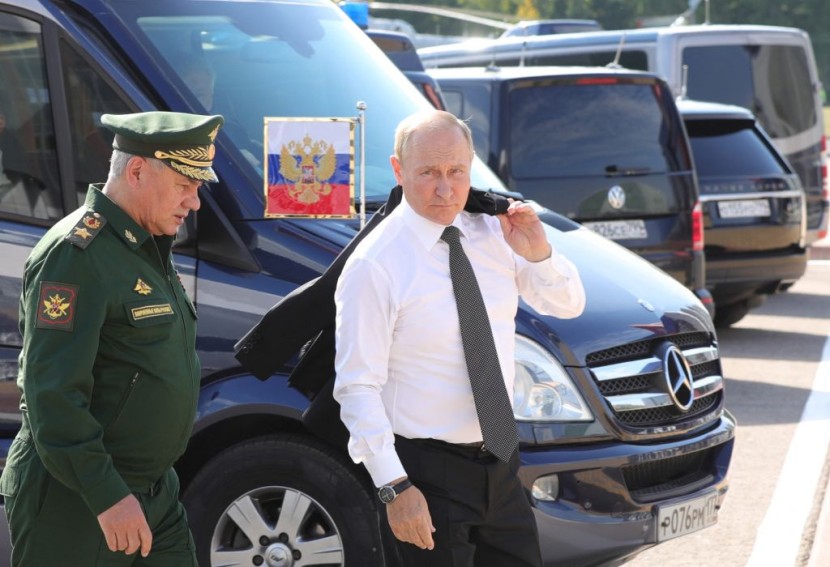
US sanctions pushed against Moscow may not be working as these punitive actions are dud according to a US outlet.
According to the Washington Post, the alleged collapse of Russia did not occur; instead, these punitive measures backfired.
Russia's Economy Thrives Despite Penalties
Six months after unprecedented sanctions were imposed on Russia, its economic growth has yet to show signs of the collapse that Western leaders had presumed, based on a leading US newspaper, reported RT.
An op-ed piece reported in the Washington Post on Tuesday recollects how soon after the US imposed Russian sanctions in reaction to its military campaign against Ukraine.
US President Joe Biden stated prematurely that Vladimir Putin's economy was on the rocks.
The article says the ruble recovered after the initial shock, thanks to Moscow imposing strict limits on foreign-currency transactions and also falling imports.
Furthermore, the number of unemployed people has not increased significantly, and energy exports continue to rake in billions of dollars into the Moscow's treasury every month.
This article then cited the IMF's most recent forecast that Russia's economy would shrink by 6% this year, a marked improvement from the previous 10% estimates.
Russian economist Maxim Mironov, an economist at the IE Business School in Madrid, knows that sanctions are having the intended effect, but unfortunately, much more slowly than everyone else originally expected six months ago.
The expert underscored that should the European Union disallow the import of Russian gas and oil; this would deal Moscow a huge blow.
However, a large part of Europe is hugely reliant on Russian energy, as the authors point out in the same statement, trying to make such a situation less likely.
The Post cited consequences of the sanctions, such as popular brands leaving the marketplace and coffee becoming more costly. Automakers have also been affected by the apparent lack of imported components.
As a consequence of Western sanctions, multitudes of highly educated professionals have already left the country, as well as pilots and other airline employees have also been laid off in significant numbers.
St. Petersburg political scientist Ilya Matveev, there will be a technological divide with the west. Russia is unable to catch up to the developed world.
Russia Sends Oil Supply to China
Chinese importation of Russian energy helped dampen economic penalties, Bloomberg
As of March, Beijing is reported to have invested $35 billion in Russian crude, oil products, gas, and coal.
Bloomberg on Monday, which referenced China's latest customs data, said that Chinese imports of Russian energy have multiplied by 75% since the beginning of the conflict in Ukraine and the resulting embargo war between Moscow and the West.
From March to July, Beijing increased its purchases of Russian crude, oil products, gas, and coal from around $20 billion to $35 billion.
The rise is the result of China's taking full advantage of Russia's energy export price reductions, which were initiated to tempt new consumers after many Western states started to forgo Russian commodities as a consequence of Ukraine-related punishments.
China purchased 7.4 million tons of Russian coal in July, a record amount and a 14% increase over the same period last year.
Due to this, Russia overtook Indonesia as China's primary fuel supplier last month, moving Indonesia down to third.
Thus the Washington Post is asking what is the purpose of Russia sanctions if it is not doing its job. Another based on the Bloomberg article threw China closer to the Kremlin as an energy client, and earning more than cash.
Related article: EU Energy Crunch: Poland Snubs Brussels Plan To Cut Gas Consumption, Refuses Gas Sharing









